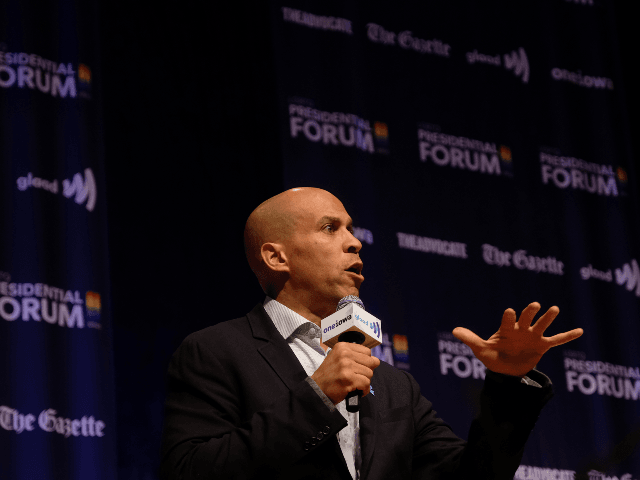Democrat presidential hopeful Sen. Cory Booker (D-NJ) recently sat down with NPR and discussed his struggle connecting with black voters in America, a struggle he denied.
Booker’s comments were made during an episode of NPR’s “Off Script,” where a conversation between Booker and two voters was moderated by Ari Shapiro.
“When we talk about the presidential candidacy, a lot of times they say they don’t feel like you are the voice — the black voice — for the black youth,” said education advocate Shanell Dunns. “How do you respond to not being able to connect to that demographic of youth?”
Booker quipped back, denying the claim that many black voters do not see him as “the black voice” for black youth.
“Well, No. 1: I think we actually do connect to it. Some of our biggest support is from HBCUs to African American young people who are big activists for our campaign. It’s one of the groups we do very well in,” Booker said.
A recent poll showed Booker trailing several Democrat presidential hopefuls in regards to support from black voters. Those who outrank Booker with support from black voters include former Vice President Joe Biden, Sen. Bernie Sanders (I-VT), and Sen. Elizabeth Warren (D-MA).
Booker went on to note his work with the First Step Act.
“So let my work speak for me,” Booker said. “In the United States Senate, I’ve pushed more than a dozen bills on these issues that span from police accountability all the way to the bill that I actually got passed … the First Step Act, which has already led to the liberation of thousands of people, overwhelmingly black and Latino people.”
Shapiro then pressed Booker on his record as Newark mayor from 2006 until 2013, specifically the Justice Department’s investigation into the city’s police force, which received “serious allegations of civil rights violations.”
“I inherited the police department with decades-long problems and patterns and practices,” Booker claimed as he responded to Shapiro.
Booker also stated his administration made “tremendous strides” to correct problems within the police force.
“At first I was like, ‘Why do I need the DOJ?’ But when they presented us with the data, we saw that we were not moving fast enough to correct the problems,” he added.
Follow Kyle on Twitter @RealKyleMorris and Facebook.

COMMENTS
Please let us know if you're having issues with commenting.